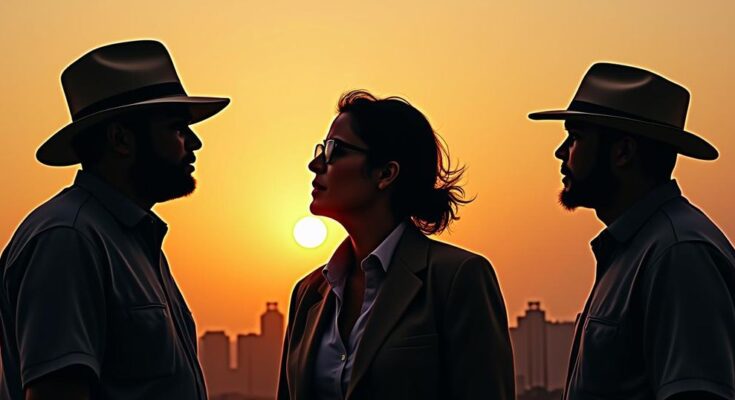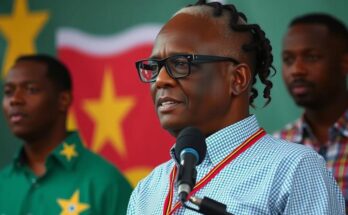This article highlights the challenges of independent journalism in Nicaragua, Cuba, and Venezuela, detailing the dangers faced by journalists forced into exile due to authoritarian government repression. It stresses the need for support and recognition of their work, particularly in light of the Inter-American Press Association’s recent award to Journalism in Exile. The call for safe communication and sustainable operational funding is underscored as essential for the survival of credible journalism in these oppressive environments.
World News Day 2024 highlights the plight of independent journalism in authoritarian regimes, particularly in Nicaragua, Cuba, and Venezuela. In Nicaragua, investigative journalism faces extreme repression as noted in several recent investigations published by the independent media outlet, Confidencial.digital. Founded 28 years ago and currently operated in exile from Costa Rica, Confidencial.digital has reported on a range of issues including public corruption, regime purges, and human rights violations. Multiple raids by police and the illegal confiscation of the media outlet in 2021 serve as stark reminders of the conditions under which journalists operate. The situation is akin in Cuba and Venezuela, where journalists are frequently imprisoned for reporting on government misconduct or expressing their views online. The Inter-American Press Association has recognized the importance of these journalism efforts in exile, awarding the “Great Prize for Press Freedom 2024” to Journalism in Exile as a gesture of support for those forced to abandon their home countries due to repression. The articles underscore that while independent journalism is increasingly criminalized in these nations, the courage of journalists continues to shine through. Despite threats, journalists maintain their credibility and pursue truth, often working anonymously to evade state lashback. The challenges faced by journalists in exile are substantial, including ensuring their safety and the financial viability of their newsrooms. Proposals are underway for identifying host countries that can provide special protections to exiled journalists and for developing new support networks to ensure the sustainability of independent press in these oppressive environments. The ongoing suppression of free expression by governments in Latin America poses a significant challenge to civil society at large and requires urgent collaboration from the international community to safeguard the freedoms that journalism upholds.
The article centers on the significant challenges faced by independent journalism in Nicaragua, Cuba, and Venezuela under authoritarian rule. It discusses the systematic repression of journalists through violence, censorship, and imprisonment, delineating the dangerous conditions that compel many journalists to operate in exile. This situation disrupts the flow of unbiased information to the public, exacerbating the difficulties of civil society in these countries. The environment for journalism has increasingly deteriorated, prompting the Inter-American Press Association to honor exiled journalists for their resilience and commitment to reporting and informing despite overwhelming fates. This narrative reflects broader trends in the region where freedoms of the press and expression are critically endangered, necessitating action and support from the international community.
The observations presented in this article emphasize the diminishing space for independent journalism in oppressive regimes in Latin America, with Nicaragua, Cuba, and Venezuela serving as focal points of this crisis. As journalists navigate life in exile under the looming threat of censorship, their determination remains vital for the sustenance of credible media. The need for safe communication channels and sustainable financing for exiled newsrooms is becoming increasingly pressing. It is imperative for the global community to stand in solidarity to protect freedom of expression and support those who dare to inform under authoritarian regimes.
Original Source: www.freepressjournal.in



